# A. Count Days Spent Together (opens new window)
Please refer to This LC Discussion (opens new window) for my solution in English.
本质是找两个区间的交集,但是计算天数时可能会有点麻烦。
两个区间的交集,取决于较晚的开始时间,和较早的结束时间。
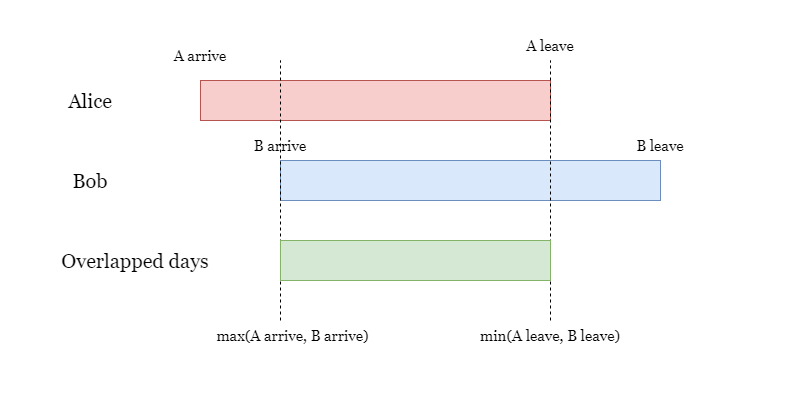
我们不直接计算区间内的天数,而是分别计算两个日期距离年初(1月1日)的天数差,两个天数差相减,也可以得到区间内天数。
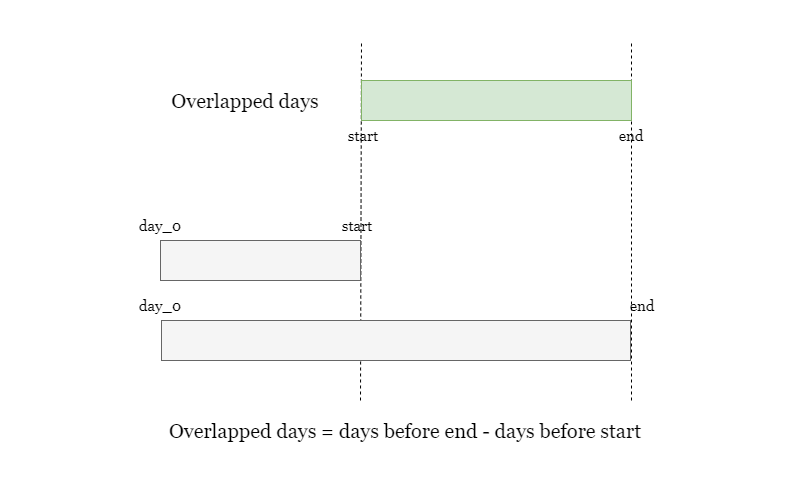
怎么计算距离年初的天数差?整月的天数,加上不足一个月的天数。
例子:
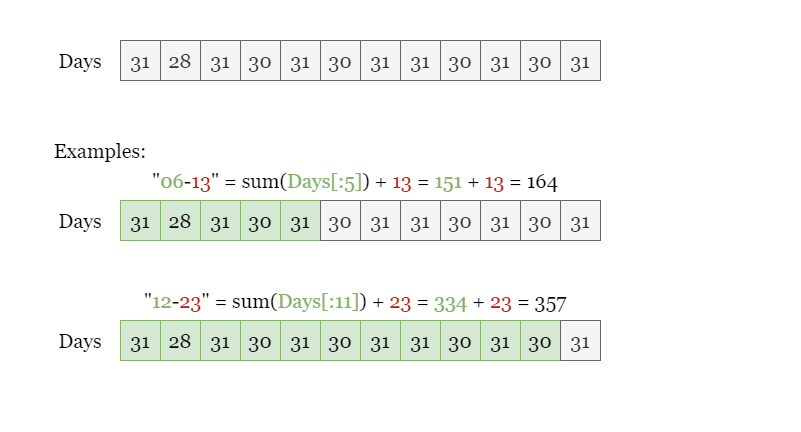
DETAILS
def countDaysTogether(self, aa: str, la: str, ab: str, lb: str) -> int:
D = [31, 28, 31, 30, 31, 30, 31, 31, 30, 31, 30, 31]
def helper(days):
return int(days[-2:]) + sum(D[:int(days[:2]) - 1])
return max(0, helper(min(la, lb)) - helper(max(aa, ab)) + 1)
# B. Maximum Matching of Players With Trainers (opens new window)
Greedy, sort players and trainers by ability.
Start with the player with the smallest ability, try to find a trainer for him. Move to the next player after finding a trainer for the previous player.
DETAILS
def matchPlayersAndTrainers(self, P: List[int], T: List[int]) -> int:
P.sort()
T.sort()
ans, i, j = 0, 0, 0
while i < len(P) and j < len(T):
if P[i] <= T[j]:
i += 1
ans += 1
j += 1
return ans
# C. Smallest Subarrays With Maximum Bitwise OR (opens new window)
Sliding window.
DETAILS
def smallestSubarrays(self, A: List[int]) -> List[int]:
def helper(arr):
curr = 0
for i, a in enumerate(arr):
if a: curr += (1 << i)
return curr
ans, n, start, number, tmp = [0] * len(A), len(A), 0, 0, [0] * len(A)
for a in A: start |= a
for i in range(n - 1, -1, -1):
number |= A[i]
tmp[i] = number
c = [[0] * 30 for _ in range(n)]
for i in range(n):
k = 0
while A[i]:
if A[i] & 1: c[i][k] += 1
A[i] >>= 1
k += 1
curr, j = [0] * 30, 0
for i in range(n):
while helper(curr) != tmp[i]:
for k in range(30): curr[k] += c[j][k]
j += 1
ans[i] = max(1, j - i)
for k in range(30): curr[k] -= c[i][k]
return ans
# D. Minimum Money Required Before Transactions (opens new window)
Please refer to This LC Discussion (opens new window) for my solution in English.
Greedy.
把transactions根据cost和cashback的大小关系分成两部分,盈利的和亏损的。
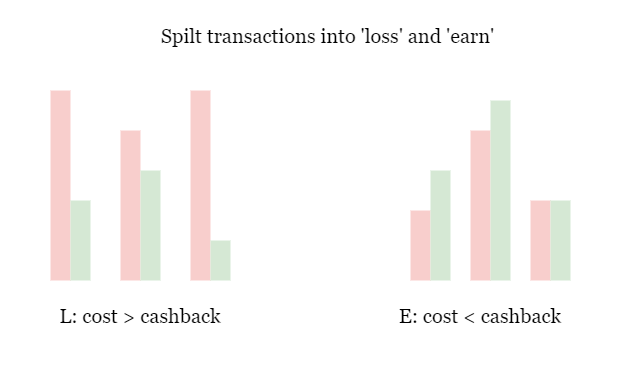
由于盈利的操作不会让budget减少,我们要把它们放到最后来处理:先亏损,后盈利。这样一来对于初始budget的要求才最高。
对于每一个亏损操作,我们既要保证当前的budget足够支付这个操作的cost,也要保证操作后的cashback可以应对下一个操作。
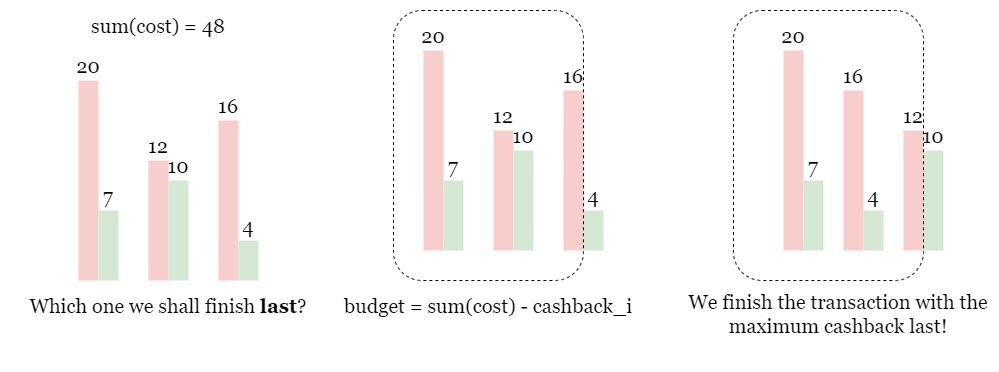
接下来处理盈利操作,因为盈利操作下budget是不会减少的,那么第一个操作前budget是最低的,如果这个时候可以满足cost最高的操作,那么接下来的操作就都可以满足了。
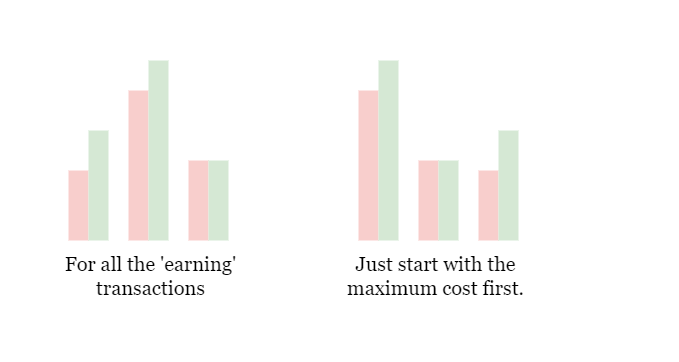
DETAILS
def minimumMoney(self, A: List[List[int]]) -> int:
# Splist transcations into two groups and sort according to the order.
L, E = [a for a in A if a[0] > a[1]], [a for a in A if a[0] <= a[1]]
L.sort(key = lambda x: x[1])
# budget: minimum budget we have met.
# curr: current budget we have.
budget, curr = 0, 0
for a, b in L:
curr -= a
budget = min(budget, curr)
curr += b
if E:
curr -= max(e[0] for e in E)
budget = min(budget, curr)
return -budget